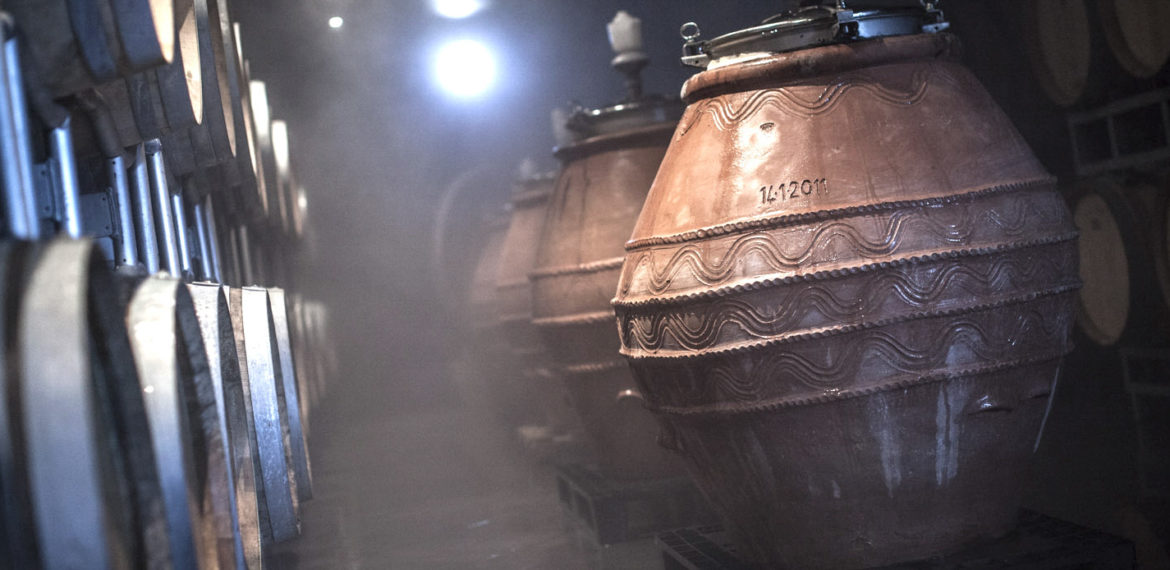
One of the assumptions of BioIntegral enology is the recovery of agronomic practices of the past. The winemaking process in amphorae, for example, is a system that even has its roots in antiquity: in Georgia, the cradle of vitis vinifera – primordial mother of all vines – is still in use in the central and eastern regions of Imereti and Kakheti . It has been an unchanged technique for millennia that requires long fermentation in underground kvevri, earthenware jars without handles.
A practice that is gradually disappearing, along with the construction techniques of the amphorae – molded by hand without lathe: for this reason, since 2008, the Slow Food Protection was established. Depending on the geographical areas, the grapes in amphorae may be fermented with stem or not, and the amphorae may be buried in thermally protected areas (where temperatures are more rigid) or placed directly outdoors.
However, there are many elements that make the amphora a valuable ally: the porosity of the terracotta, the thermal protection of the burying, the mineral component of the wine in contact with the clay, the passage of natural clarifying inside the ‘jar … All these components, are tested, valued compared by the Biointegrated winemaker: despite having its roots into the past, the vinification in amphorae is not yet backed up by scientific and modern literature that establishes times, parameters, modes: how much do minerals in the soil influence the clay and thus the contents of the jar? What are the ideal temperatures of burying, at what depth? And what levels of evaporation of the content?
A story still partly to build but that is getting in the first, visionaries experimenters, really excellent results: healthy products and high organoleptic quality, very good wines capable of excellent performance. Where the fruit rules.

